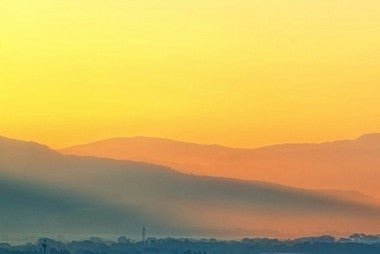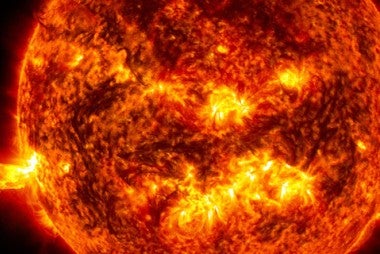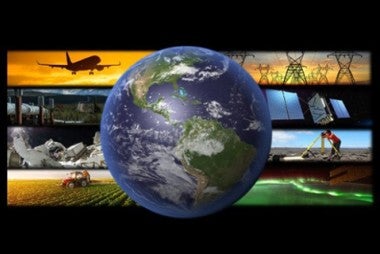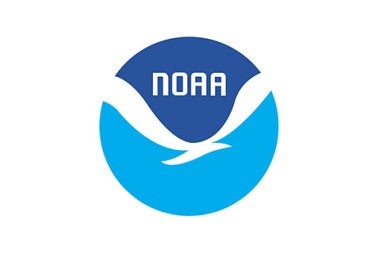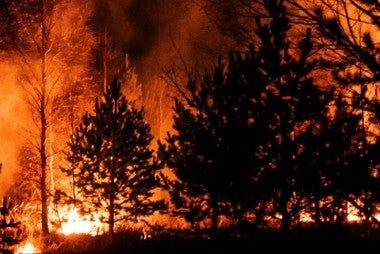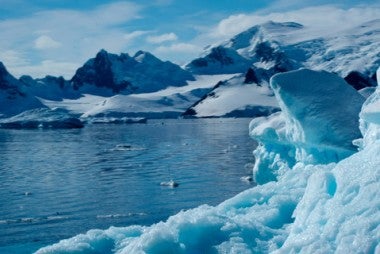Gabriel Vecchi | In the News
Global Warming Cited in Wind Shift
Forbes (May 3, 2006) circ. 925,959
Wired (May 4, 2006) circ. 603,259
Houston Chronicle (May 3, 2006) circ. 521,419
. . . [T]he slowdown might reduce populations of tiny plants and animals up through the fish that eat them, because of reduced nutrition welling up from the deep, said the author, Gabriel Vecchi. . . . [I]t appears the slowdown is largely due to the man-made buildup of greenhouse gases, the researchers concluded. And the result lends more credibility to computer models that trace global warming to greenhouse gases, at least for their ability to forecast what will happen in the tropics, Vecchi said.
Signs of climate change circulating
Seattle Times (May 4, 2006) circ. 232,124
. . . It's not clear what climate changes might arise, but the long-term effect might resemble El Niño, albeit a weak one. . . . As for the Pacific food chain near the equator, the slowdown may be reducing populations of tiny plants and animals on which fish feed, because of reduced nutrition welling up from the deep, said Gabriel Vecchi, author of the study.
Trade winds weaken with global warming
The Guardian (London) (May 4, 2006) circ. 382,931
. . . Gabriel Vecchi, a climate scientist at the National Oceanic and Atmospheric Administration in New Jersey, used air pressure records, including measurements from the Royal Navy dating back to the 1860s, to work out how a major air current, known as the Walker circulation, had changed with time, particularly since the Industrial Revolution. . . . "We know this air current has an influence on weather in many regions, so we can expect there to be changes locally. Ecosystems are complex, but our concern would be that this could also affect biological productivity over a large part of the Pacific," he added.
Global warming weakens air currents
Australian Broadcast Corporation (May 4, 2006)
The system has weakened by 3.5 per cent over the past 140 years and the culprit is probably human-induced climate change, scientists report in today's issue of the journal Nature. "This is the impact of humans through burning coal, burning benzene, gasoline, everything," said Dr Gabriel Vecchi of the US National Oceanic and Atmospheric Administration. "It's principally the greenhouse gases from fossil-fuel burning." The observed slowdown has been more pronounced in the past 50 years, Dr Vecchi says, noting this fits with what theorists and computer models predict should happen as a result of human-induced global warming.
Source of Pacific trade winds weakens
Atlanta Journal-Constitution (May 4, 2006) circ. 362,426
Seattle Post-Intelligencer (May 4, 2006) circ. 132,694
Western Star (Lebanon) (May 4, 2006) circ. 22,727
Atmospheric circulation over the Pacific Ocean has weakened significantly during the past century, and scientists say the most likely explanation for the shift is human-induced climate change. "The Walker Circulation is fundamental to climate throughout the globe and variations in its intensity and structure affect climate across the planet," Gabriel Vecchi of the University Corporation for Atmospheric Research said Wednesday. "The scale of this feature is enormous."
Trade winds' slowdown backs warming theory
San Francisco Chronicle (May 4, 2006) circ. 391,681
Climate scientists have documented a pronounced slowdown in the Pacific Ocean atmospheric system that drives the trade winds, a prediction of global warming theory that appears to be coming true. . . . The new research was led by Gabriel Vecchi, a scientist affiliated with the 69-institution consortium known as the University Corporation for Atmospheric Research but working as a visiting scientist at the National Oceanic and Atmospheric Administration's Geophysical Fluid Dynamics Laboratory in Princeton, N.J. . . . Because ocean winds drive currents, Vecchi said one clear impact may be a reduced Pacific upwelling, potentially reducing the biological productivity of ocean regions affected.
Podcast 4 May 2006
Nature (May 4, 2006)
This is a transcript of the 04 April edition of the weekly Nature Podcast. . . . Gabriel Vecchi: . . . The principal observations that we've used have been a record going back into the middle of the 19th Century of measurements of sea level pressure which allow us to deduce what circulation across the tropical Pacific has been like and based upon these records a clear slowdown of the winds across the tropical Pacific has emerged. We then used computer climate models to test what the source of that slowdown has been and our experiments indicate that it's very unlikely that this slowdown in the tropical Pacific circulation arose due to natural variability or changes in the solar radiation. However, the moment we start accounting for human impacts we're able to reproduce this slowdown very well with our climate models.
Global warming weakens vast Pacific climate system
Reuters (May 3, 2006)
Gulf Times (May 4, 2006) (Doha, Qatar) circ. 25,000
. . . This important system has weakened by 3.5 percent over the last 140 years, and the culprit is probably human-induced global warming, scientists reported in the current edition of the journal Nature. "This is the impact of humans through burning coal, burning benzene, gasoline, everything," said Gabriel Vecchi of the U.S. National Oceanic and Atmospheric Administration and an author of the study. "It's principally the greenhouse gases from fossil-fuel burning."
Global warming weakens Pacific trade winds - Long-term effect could disrupt marine food chain
MSNBC.com (May 3, 2006)
FoxNews.com (May 4, 2006)
Yahoo! News (May 3, 2006)
Space.com (May 3, 2006)
. . . Using a combination of real-world observations and computer modeling, researchers conclude that a vast loop of circulating wind over the Pacific Ocean, known as the Walker circulation, has weakened by about 3.5 percent since the mid-1800s. The trade winds are the portion of the Walker circulation that blow across the ocean surface. The researchers predict another 10 percent decrease by the end of the 21st century. . . . The study was led by Gabriel Vecchi of the University Corporation for Atmospheric Research and is detailed in the May 4 issue of the journal Nature. . . . "This is evidence supporting global warming and also evidence of our ability to make reasonable predictions of at least the large scale changes that we should expect from global warming," Vecchi told LiveScience.
Global warming weakens Pacific winds - Dwindling circulation could worsen El Niño effect.
Nature (May 3, 2006) circ. 67,437
. . . The system, known as the Walker circulation, has weakened by more than 3% since the mid-nineteenth century, report climate modelers led by Gabriel Vecchi . . . . They also used computer climate models to simulate the past and future performance of the Walker circulation, helping to work out how much of the effect is due to man-made greenhouse emissions. The answer, says Vecchi, is pretty much all of it. "At least 80% of this is attributable to human activities," he says. When the researchers ran the model without including human factors such as industrial greenhouse emissions, the change in wind strength all but disappeared. "Over the past 140 years, there should have been next to no trend," Vecchi says.
Global Warming Slows the Winds
Science (May 3, 2006) circ. 126,204
. . . A team led by climate scientist Gabriel Vecchi of the U.S. National Oceanic and Atmospheric Administration examined historical weather records from the equatorial Pacific Ocean dating back to 1861. They found that the difference in pressure between the east and west Pacific has declined since that time, suggesting a weakening Walker circulation. . . . Weakened winds across the Pacific could reduce the upwelling of nutrient-rich water off the coasts of Peru and Ecuador, which could in turn put a damper on biological activity and cause a decline in fishing stocks, the researchers argue in the 4 May Nature.
Slowdown In Tropical Pacific Flow Pinned On Climate Change
Science Daily (May 3, 2006)
The vast loop of winds that drives climate and ocean behavior across the tropical Pacific has weakened by 3.5% since the mid-1800s, and it may weaken another 10% by 2100, according to a study led by University Corporation for Atmospheric Research (UCAR) scientist Gabriel Vecchi. The study indicates that the only plausible explanation for the slowdown is human-induced climate change. . . . "The Walker circulation is fundamental to climate across the globe," says Vecchi.
Information Provided by: NCAR|UCAR|UOP Press Clips - May 2006
